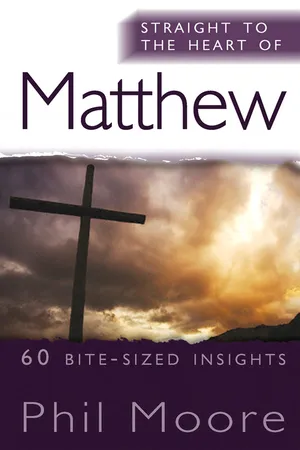You wouldn’t have liked Levi, the weaselly little tax collector who manned the tollbooth on the Capernaum road. Levi was the lowest of the low. He was a collector of custom duties on the busy trade route from Damascus to Egypt, a member of that notorious clique of state-sanctioned highwaymen who topped up Caesar’s taxes with inflated surcharges of their own. It wasn’t enough that Levi and his friends were a treacherous cog in the voracious Roman tax machine. They had become parasites in their own right, feeding on the blood and sweat of their hard-working neighbours. One day, when the Messiah came and broke the yoke of Roman oppression, people like Levi would get what was coming to them. And no one would be sorry.
The Jewish leaders made no attempt to hide their hatred of him. To them he was no better than a common murderer or thief. They barred him from their synagogues and refused to take his money in their offerings. As far as the rabbis were concerned, he had sold his soul to Caesar and to silver, and had placed himself beyond the reach of God’s redemption.
Except for one rabbi, that is. Jesus of Nazareth was a different kind of rabbi, more interested in exposing the sins of the teachers of the law than he was in picking on the tax collectors. When Jesus spoke, Levi listened, and the more he listened the more he dared to dream. This miracle-working rabbi seemed more at home with the prostitutes than with the priests, and he was fast gaining a reputation for consorting with drunkards, cheats, low-lifes, and tax collectors like him. The locust-eating hermit, John the Baptist – the only man in Israel whom the Pharisees seemed to hate even more than Levi and his cronies – had hailed Jesus as the long-awaited Messiah. Could this man truly be the promised Jewish King who would outshine and outlast Caesar? If so, would he really extend mercy to a sinner like Levi? The traitor from Capernaum allowed himself to dream and hope and believe.
One day, Levi’s dreams came true. The rabbi came calling at his tollbooth. He bent across the table and, across the stacks of Roman coins, looked Levi in the eye and said: “Follow me.” Levi returned the rabbi’s gaze. His eyes shifted from the coins to the carpenter, from the face of Caesar to the face of the Saviour. Jesus was asking him to join his Revolution, to leave behind the Empire and enter into his Kingdom. Levi leaped to his feet and left his money-laden table behind. He was working for a new King now. The Revolution had begun.
The first thing Levi did was to throw a party. He filled his house with tax collectors and introduced them to the rabbi who had given him a new start. Levi told them that he had a new name now – Matthew, meaning Gift-of-the-Lord – as a mark of the lavish grace which God had poured upon his life. Matthew had joined the Revolution, and his new name spoke of a new life to come.
Matthew would be flogged, imprisoned, and eventually martyred because he sided with King Jesus on that fateful day on the Capernaum road. He would give his life to proclaim the message of the Kingdom in the pagan lands of Persia, Parthia, and modern-day Georgia. But, before he died, he would write a Gospel account of the life of Jesus. He would write it as a revolutionary pamphlet which called many others to leave everything, just as he did, to follow the Servant King from Galilee.
Millions of people across the past 2,000 years have read Matthew’s gospel and laid down their lives for the Revolution of Jesus Christ, but I want to end this book by telling you about just one of them.
C.T. Studd was one of the greatest sportsmen of his generation. He played for the England cricket team at The Oval in August 1882 in the infamous match which gave birth to the Ashes. He was a Cambridge-educated sporting legend and fabulously wealthy, until one day he read a portion of Matthew’s gospel. The words of 16:26 sank deep into his heart: “What good will it be for a man if he gains the whole world, yet forfeits his soul?” Studd was undone: “Either I had to be a thief and keep what wasn’t mine, or else I had to give up everything to God. When I came to see that Jesus Christ had died for me, it didn’t seem hard to give up all for him.” He gave away his fortune and told Hudson Taylor that he would be one of the men he had prayed for on Brighton beach. He would lay down English fame and fortune to preach the Gospel throughout inland China. His decision shocked and challenged a nation, but he laughed at their surprise that he gave up everything for the Kingdom of God: “I knew that cricket would not last, and honour would not last, and nothing in this world would last, but it was worthwhile living for the world to come… If Jesus Christ be God and died for me, then no sacrifice can be too great for me to make for him.”
This is what it means to be a Christian – living as an all-in, sold-out, gloves-off radical in Christ’s Kingdom army. Make no mistake: Jesus of Nazareth sparked the greatest Revolution the world has ever seen, and he deserves nothing less than your total devotion. He comes to you as you finish this book, and gazes into your eyes across the table of your piled-high hopes and dreams. He invites you to play your part in his Kingdom by giving you the same invitation which he gave to Matthew so many years ago: “Follow me.”
This is King Jesus. This is the long-awaited Messiah. This is the only true Lord of your life. So come. Leave behind your excuses, your compromises, and your half-hearted religion. Jesus the Messiah is calling you. The Revolution has begun.

